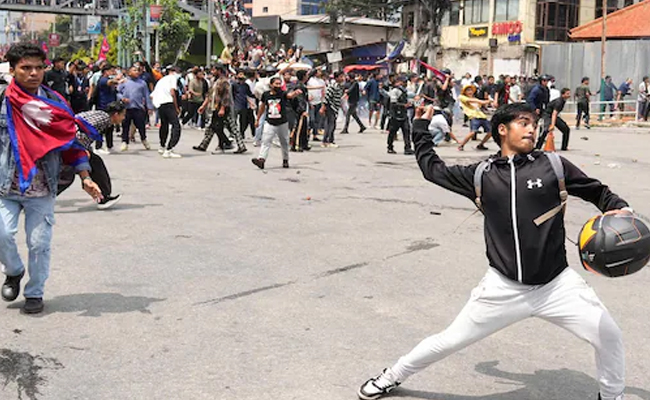
World

Protest programs led by youth in Nepal have once again triggered intense unrest. Though protests have erupted several times in the capital before, this time they were completely different — and violent.
The Nepal violence has already claimed 19 lives and injured over 250 people. Officials themselves have warned that the death toll may rise further.
It all started with the youth of Nepal rising up against a ban on social media platforms. While Facebook, WhatsApp, and Snapchat were restricted, thousands of young people managed to gather in the capital using TikTok and VPN technology to exchange information.
They demonstrated against the government, defied warnings from authorities, and even entered restricted areas. In response, police opened fire. Almost all those who took part in the protests were under the age of 28.
Here’s the real matter...
On the surface, it might look like just a protest against a social media ban. But if you dig deeper, there’s a much bigger story behind it.
On September 4, the government announced that, in the interest of national security, several social media platforms would be blocked. Behind this announcement were clear political motives.
For several days, posts criticizing the government had been going viral in Nepal. Among the most talked about were posts about the children of political leaders — “political nepo kids.” Pictures of some politicians’ children living luxurious lifestyles spread rapidly online.
Not just the nepo kids’ affairs — posts about corruption linked to government contracts also went viral. One major example involved a 2017 deal in which state-owned Nepal Airlines purchased two aircraft — social media claims alleged massive corruption in that deal.
There were two or three other key issues that surfaced as well, including agriculture. Posts appeared with evidence claiming that the government had abandoned the farming sector.
Discussions on Reddit and other platforms heated up, accusing political families of wasting taxpayers’ money. A hashtag, #PoliticiansNepoBabyNepal, went wildly viral.
All of this enraged the government. In response, it decided to impose a blanket ban on social media platforms. The government also tried to justify its decision, with the Prime Minister himself saying: “Apps must share revenue in Nepal, pay taxes, and operate under rules that protect national interests.” This statement only fueled the protests further.
Thus, there’s a long story behind the social media ban. Opposition parties added fuel to the fire. As a result, large-scale protests broke out in the capital, leading to violent clashes and several deaths. Eventually, Nepal’s Home Minister had to resign. In the next two days, Nepal’s political landscape is expected to undergo a major transformation.
Advertisment